A year into retail sales, Upper Valley cannabis industry growing
|
Published: 12-24-2023 1:17 AM
Modified: 12-26-2023 1:23 PM |
CHELSEA — An old-timer might plant potatoes in accordance with phases of the moon. To best suit his cannabis plants, 31-year-old Sean Trombly carefully times his LED grow lights.
This winter, Trombly is growing hydroponically, which for him means that his product blooms out of a mixture of finely ground coconut husks, fed with nutrient-enriched water in his garage, rather than from soil.
When the plants are young, he’ll set his lights to 12 hours on, 12 hours off, in order to “flip” the budding plant “into flower,” he said.
Once that happens, it’s roughly eight to nine weeks until Trombly is ready to harvest.
He works against the backdrop of a complex tangle of water pipes and the persistent drone of dehumidifiers. When it comes time to turn the light up to full throttle, it’s so bright Trombly has to leave the room.
“That’s when we’re really cooking,” he said.
Off a Chelsea back road, rocket science has gone to pot.
Trombly has grown cannabis, at increasing levels of sophistication, for a decade. He started in the black market before any form of legalization. Like the other growers that gave Vermont its reputation for some of the best illicit pot in the Northeast, Trombly could have found himself answering to criminal charges for growing even just a few plants.
Article continues after...
Yesterday's Most Read Articles
 Dartmouth administration faces fierce criticism over protest arrests
Dartmouth administration faces fierce criticism over protest arrests
 West Lebanon crash
West Lebanon crash
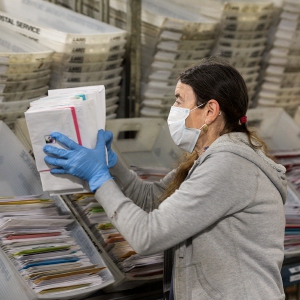 Plan on track to ship Upper Valley mail to Connecticut for sorting
Plan on track to ship Upper Valley mail to Connecticut for sorting
 Lebanon’s Jewell back from auto accident, more aware of ‘drowsy driving’ dangers
Lebanon’s Jewell back from auto accident, more aware of ‘drowsy driving’ dangers
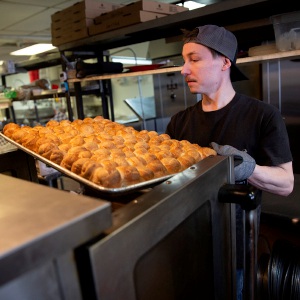 Longtime employees buy West Lebanon pizzeria
Longtime employees buy West Lebanon pizzeria
Then in October 2022, the first retail cannabis stores opened in Vermont for anyone age 21 and older. In the first full year of legalization, cannabis topped $87 million in sales and brought in more than $17 million in tax revenues.
Vermont is now home to hundreds of licensed growers and just under 80 retailers.
Roughly a third of the money from the 20% excise tax on cannabis goes to substance misuse prevention programming. Taxes collected also support after-school and summer learning programs.
After legalization, towns could decide whether or not to allow retail cannabis sales. In the Upper Valley, Bethel, Bradford, Hartford, Randolph, Windsor and Woodstock are home to dispensaries.
In industry speak, folks such as Trombly who moved into legal sales after developing their art on the black market are known as “legacy” growers.
The Vermont Cannabis Control Board was formed in 2020 to administer medical and “adult-use” cannabis markets. Commissioner James Pepper said that there were deliberate moves made to draw in legacy growers.
“If we wanted to do something special in Vermont, we needed those growers to want to participate in a regulated market,” Pepper said. “These are folks who have been prosecuted and persecuted by the government for so long. Saying, ‘Oh, now everything’s OK,’ wasn’t necessarily an obvious transition.”
To do that, early legislation intentionally tried to make the Vermont market unattractive to large, multi-state cannabis operators, or MSOs, Pepper said. New York and Connecticut were legalizing retail cannabis around the same time, so Vermont created stringent regulations for security and insurance but retained authority to make exceptions for the smallest growers, he added.
To protect cultivators who grow 1,000 square feet of cannabis or less, Vermont has tried to shunt big operators to other states.
“We made regulations that we thought made sense and then went through line by line and made regulatory waivers for small cultivators,” Pepper said.
Vermont indoor cannabis cultivation licenses exist on a six-tiered scale, ranging from 1,000 to 25,000 square feet. A similar sliding scale exists for outdoor and mixed growth. Trombly has a tier three license.
By size, the largest licensed grower in Vermont is in the bottom quarter of growers in Massachusetts, Pepper said. “So when you think about economies of scale, it didn’t really make sense for a lot of these larger operators to consider Vermont,” he said.
But while the old guard is at the helm of the new Vermont market, as the fledgling industry matures, it’s a fight to remain there, Trombly said. Growers still feel the threat of their larger, more corporate counterparts and fear that out-of-state operations could plop down in the Green Mountain State and price out the smaller cultivators.
So there have been grassroots efforts to keep them out, too, Trombly said.
“The big boys came in, and a lot of dispensaries shunned them,” he said. “Vermont’s like, ‘We have our craft beers, so we’ll take our craft pot too.’ ”
Trombly built his growing setup himself.
An aptitude for complex machinery has served him well: As his primary gig, he’s a diesel mechanic. And in the garage next to his home that he lives in with his wife and young daughter, where he used to fix up cars, he built a bona fide cannabis laboratory.
“I know all the equipment,” Trombly said. “If something breaks, I can just go fix it myself.”
Otherwise, out in Chelsea, a grow light could go dim on him and his plants might be stranded for a long time in the dark while he’s hemorrhaging money and waiting for someone else to come for repairs.
Trombly’s family provided startup cash and moral support, both of which the job requires. Most months, electric bills for his grow lights and eight heat pumps top $3,000.
His father sometimes helps him roll joints for retail sale, also known as “pre-rolls.” (The duo can roll 7,500 in a five hours.)
He also had his first cannabis-infused gummy recently, Trombly said, and he sometimes brings Trombly’s supplies to his friends.
“Now that he’s older, his buddies will take a gummy to get better sleep or to go fishing,” Trombly said.
An average wholesale order from Trombly House of Cannabis to a dispensary is between $3,000 and $6,000, he said. His bigger orders get closer to $16,000.
Trombly typically grows from “clones,” which are cuttings off of living plants. But in one room he was growing from seed — “genotype hunting,” as he called it.
“I just want it to stink,” Trombly said of his product’s olfactory properties. “That’s what you want — when you open the bag and go, ‘Oh my god.’ That’s what sells.”
Green zip ties on a Trombly plant mean they’re from the “jelly donut” strain. He quickly sold out of “blueberry bastard,” a strain that he got from cuttings from a friend’s plant. There are two other licensed growers in Chelsea.
“People get a kick out of ‘blueberry bastard,’ ” Trombly said. “That’s also what sells — the names.”
He politely declined to say how much he’s made in total sales.
His mixed-use tier three license, for which he must pay $5,500 annually to renew, makes him eligible for outdoor growing as well. He typically spends the summer fighting deer back from a fenced-in, four-acre plot up the hill behind his house.
But this past season he faced a more significant threat. Like other agriculturalists in Vermont, flooding and heavy rain devastated Trombly’s crop.
Normally, he waters his outdoor plants around three times a week. This year, Trombly didn’t water once after early June and lost all of his plants — which should have yielded 300 pounds of retail quality cannabis — to excessive moisture. They started rotting right in the ground.
“Next year, they’ll be in raised beds, no question,” he said.
Despite its vulnerability, and the economic activity and tax revenue it generates, Vermont’s cannabis growers have spotty access to insurance, which they’re required by law to have.
Cannabis businesses were eligible for $20 million in aid the state set aside for small businesses after the flood, but they couldn’t apply for federal assistance, including from the Federal Emergency Management Agency or the Small Business Administration. The federal government still considers cannabis a controlled substance.
Individual losses for cannabis growers across Vermont related to this summer’s wet weather were in the hundreds of thousands of dollars, Seven Days, a Burlington weekly, reported.
The atmosphere in White River Growpro, which opened next to Big Fatty’s BBQ on White River Junction’s Main Street in 2014, is like that of a skate shop. Customers, who range from amateurs just getting into home-growing to commercial cannabis growers like Trombly, talk strategy with co-owners Kendall Smith and Stephanie Waterman.
Growpro is among a handful of “grow stores” in Vermont, selling cannabis cultivation equipment like lights, fertilizers and molds for making gummies. Smith and Waterman, who are married, remember the details of their customers’ growing set-ups and ask pointed questions about upgrades and losses.
“There’s a lot of good watercooler talk,” Waterman said.
Trombly goes “almost weekly” to Growpro to test his strains’ levels of tetrahydrocannabinol, or THC, he said. THC is the compound in cannabis that makes its users feel “high.”
Earlier this month, he dropped by to check on “blueberry cupcake.”
It’s $25 a test, and for “his own research,” Trombly said — just another clue in his “genotype hunting.”
Later, once he’s got a harvest in order, he’ll drive it an hour to a lab near Colchester, Vt,. that does mandated state testing for pathogens and pesticides that starts at $425.
The tested cannabis at Growpro gets put in a donation jar, labeled “pot pourri.” At no charge, Smith and Waterman give it to people who can’t afford to buy it for themselves, especially older users, and people with chronic pain.
When Growpro first opened — and cultivation was still illegal in Vermont — there were three other such suppliers in the state. Back then, it was typical of grow stores to be marketed as a “hydroponic outlets,” and like any legitimate enterprise, the chatter in the store was rich with lingo to obscure many a customer’s true intentions.
Before legalization, people would walk in and speak to Smith in code, he said. He never took it at face value when someone came started asking complicated questions about hydroponic “tomato” cultivation.
The store’s deep relationship with growers has helped it weather the sea changes of the tempestuous market, Waterman said.
A few longtime customers such as Trombly have grown their enterprises significantly.
“It’s fun to be involved from the ground up,” she said.
Sometimes GrowPro will outfit a cultivator’s entire setup. But a dip in sales followed the legalization of the adult-use retail market. Overnight, it became easier to pop into a dispensary than toil over a finicky cannabis plant.
To make up for some of their lost equipment sales, Smith and Waterman have been licensed to open a dispensary in the store at the end of January.
“To truly support the craft market, there’s a lot of layers to that,” Waterman said. “To have that, you have to support the infrastructure that you want to see in Vermont.”
Patricia “PJ” Eames, owner of Sunday Drive — a dispensary in Woodstock that opened in November 2022 — said it’s too early in cannabis retail to rebuff dispensaries that sell cannabis grown by the multi-state operators that Pepper mentioned.
“Everyone’s just gotta do what they feel is right,” Eames said. “We can’t start judging people on that.”
But her store only carries products from small outfits.
“We’re really just trying to focus on Vermont craft growers and the legacy market,” Eames said.
Similar to GrowPro, early connections to the cannabis industry helped jump-start retail at Sunday Drive. Eames sold cannabidiol, or CBD — which comes from cannabis but doesn’t contain THC — out of her gift store Clover, on Main Street. She became Woodstock’s de facto cannabis advocate.
In 2022, the town of Woodstock opted to allow legal retail sales, but the village struck down the measure.
So Sunday Drive, with its eight employees, set up shop just outside of village limits, next to Worthy Kitchen on Route 4.
“There are people who come into my store and are like, ‘Give me the plant with the highest THC potency,’ and instead, we educate them about terpene profiles,” Eames said, referring to a more nuanced component of a cannabis plant that some users say can influence its effect.
Sunday Drive has customers who track their experience with different strains, keeping books full of results from varied “terps,” she said.
Using cannabis requires more study than most would think, Eames said: “If you’re going to make this choice, it’s really going to take some work.”
The legal industry, in its infancy, is similar. At the level of regulation and of business, it’s still learning about itself — what will help it to thrive and what hurts it, what’s fair and what’s not.
Eames mentioned advocacy in the Legislature to allow medical patient cardholders to buy at retail dispensaries without paying the 20% excise tax, from which they’re already exempt at medicinal stores.
(In her store, Eames currently deducts 20% off for those cardholding medical customers to make up for the tax and knocks 10% off for local buyers).
Pepper, the Cannabis Control Board commissioner, fears that kind of exemption could run the already-suffering medical dispensaries out of the market. “This is a market that consolidates quickly, always,” he said.
As a result, the Legislature has to be careful about what it puts in stone when it comes to cannabis, he said.
And Eames herself is also nervous about a growing glut of dispensaries. The Upper Valley has fewer than other areas of Vermont, but in Burlington there are around 10, she said, with more on the way.
“It’s just going to drive the price down,” she said. “And we really need to keep this market sustainable.”
Trombly criss-crosses Vermont, heading to Burlington one day and Rutland the next to get his product into dispensaries. “The Gas Station,” on Main Street in Rutland, sometimes sells as many as 40 of his pre-rolls a day.
But he’s still hustling to make a sustainable income from cannabis.
“It’s certainly not the get-rich-quick scheme that people seem to think it is,” Trombly said.
What are his future plans? If he can get a down payment together and zero in on a location for a storefront, he’s hoping to open a dispensary of his own.
Frances Mize is a Report for America corps member. She can be reached at fmize@vnews.com or 603-727-3242.

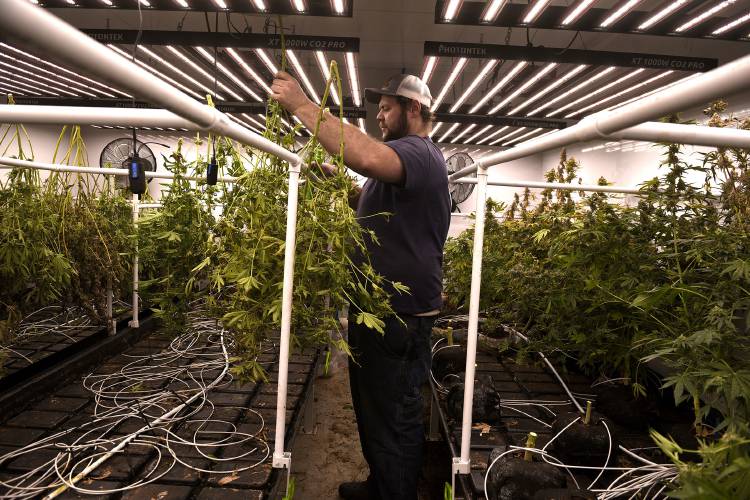
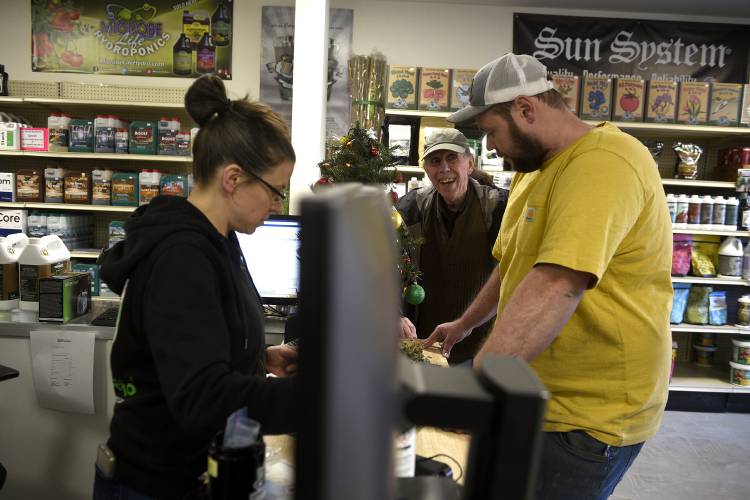
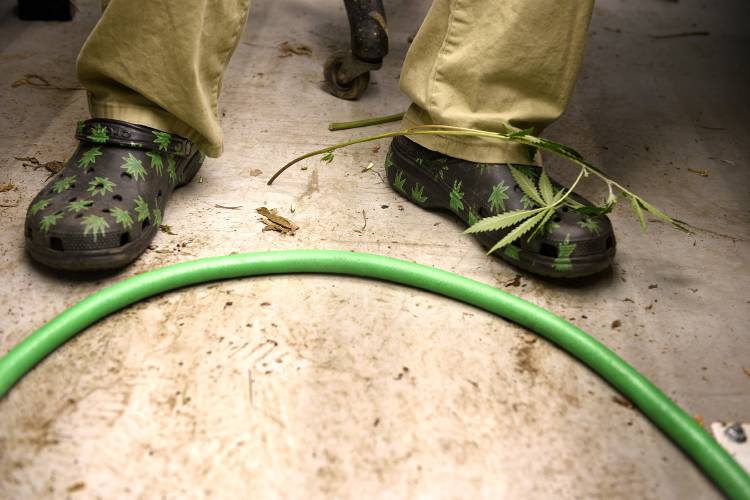
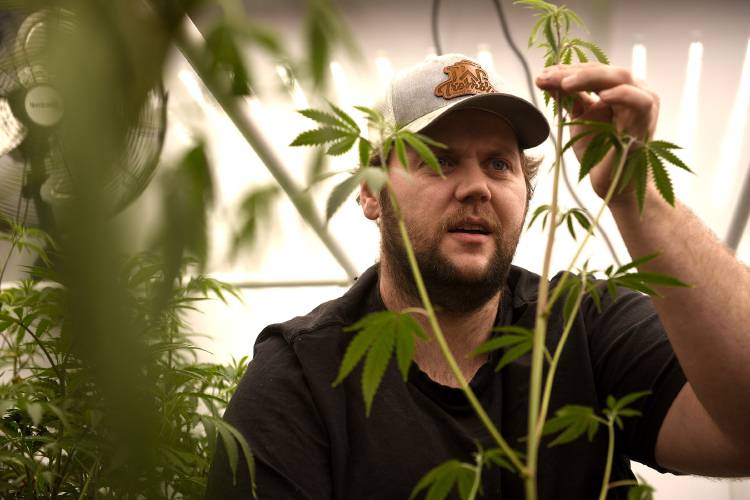
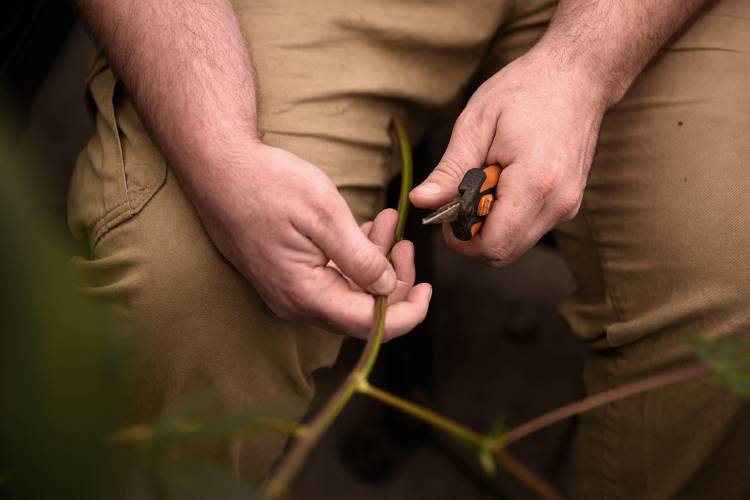
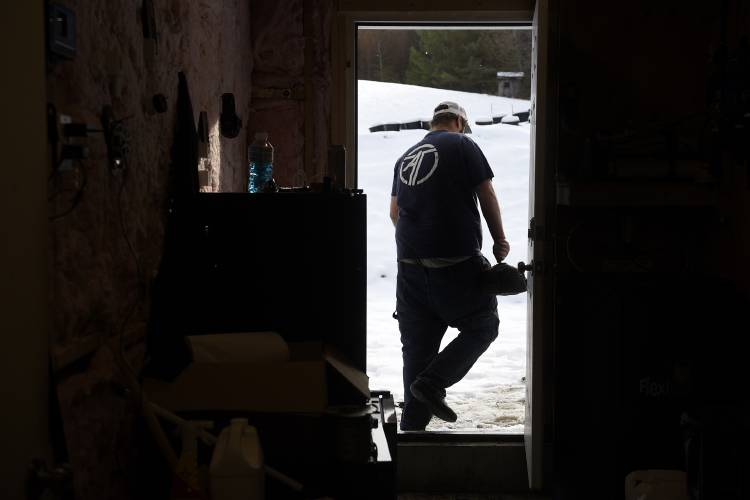
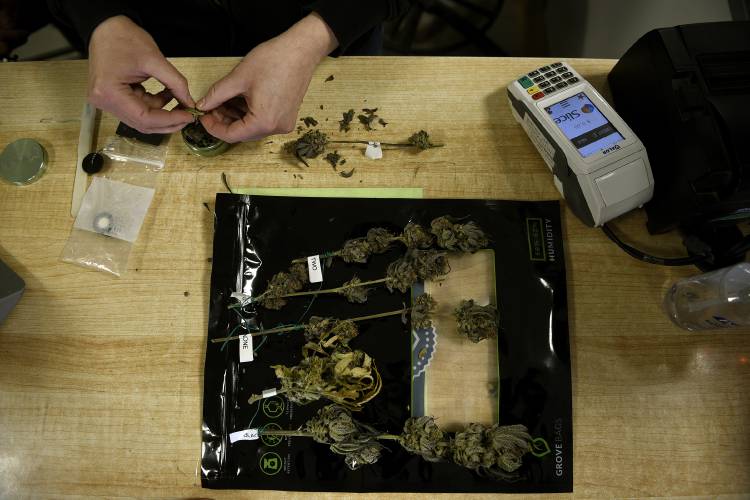
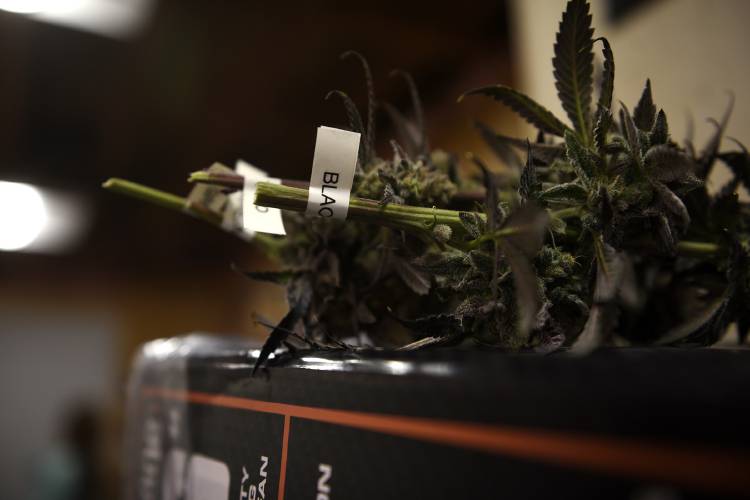
 Over Easy: On bread, buttered popcorn and big sandwiches
Over Easy: On bread, buttered popcorn and big sandwiches
